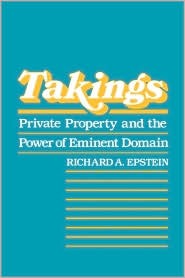"It is the four to two lanes that they needed to grasp, and they were able to see that," Farrell Keough told The Gazette on Friday.
Keough, who lives in Urbana, is chairman of the Citizen's Advisory Committee of the Washington Council of Governments' Transportation Planning Board. He suggested that the committee meet at 6 p.m. in Frederick so its members could better understand the county's need for traffic improvement.
"I think this is the perfect time to come up for a meeting," said City of Frederick Alderman C. Paul Smith (R), who came to listen. "You came right up during rush hour."
Frederick County Commissioner Charles A. Jenkins (R), chairman of the Transportation Planning Board, wanted his colleagues on the regional board to take a look at the county's traffic. "I thought it would be good for them to get a sense of what we have to deal with in Frederick County," he said.
The council of government's Transportation Planning Board was created in 1965 by local and state governments. The board plans transportation improvements for the metropolitan region, and applies for federal funding. Members of the board include local government leaders and state transportation agencies.
read the rest of the article in the Gazette here...
This next article isn't about Frederick but it is about our Freedom of the Press so I thought it important enough to reblog here:
Texas developer files lawsuits to bulldoze Freedom of the Press
Targets include book author, publisher, law professor Richard Epstein and newspapers that published book review. The eminent domain and redevelopment issues in this case, all of which have roots in the precedent setting Supreme Court Kelo vs City of New London (CT) mirror issues that have arisen in Clarksville in the past 15 months, including a libel lawsuit against the grassroots Clarksville Property Rights Coalition. Dallas, Texas: In perhaps the most striking example of a disturbing national trend, Dallas developer H. Walker Royall has launched a lawsuit spree to silence any media or public affairs commentator who dares expose his attempted abuse of eminent domain. Similar suits have been filed in Tennessee, Missouri and elsewhere by developers and governments looking to silence critics of eminent domain for private gain.
Dallas, Texas: In perhaps the most striking example of a disturbing national trend, Dallas developer H. Walker Royall has launched a lawsuit spree to silence any media or public affairs commentator who dares expose his attempted abuse of eminent domain. Similar suits have been filed in Tennessee, Missouri and elsewhere by developers and governments looking to silence critics of eminent domain for private gain.
Royall worked with the city of Freeport, Texas, to try to condemn a generations-old shrimp business owned by the Gore family to make way for a luxury marina. The project became the subject of the book, Bulldozed: ‘Kelo,’ Eminent Domain, and the American Lust for Land, authored by veteran legal journalist Carla Main.
Bulldozed tells the story of Freeport’s plan to take the Gore’s waterfront property for Royall’s luxury marina development project. Only hours after the U.S. Supreme Court’s infamous Kelo v. City of New London eminent domain abuse decision, the city instructed its attorneys to redouble their efforts to seize the Gore family business. Bulldozed unravels why, after years of litigation, the threat of condemnation continues to hang over the Gores. The book was reviewed in many newspapers, including The Wall Street Journal, was nominated for the Texas Historical Commission’s annual T.R. Fehrenbach Book Award and it won a highly competitive independent press award for political science writing.
After journalist Main wrote her book exposing the Freeport land grab, Royall sued her as well as her publisher, Encounter Books, for defamation. He even sued nationally renowned Law Professor Richard Epstein who wrote a blurb for the book’s dust jacket. When someone reviewed the book, he sued him. When two newspapers published that review, he sued them.
 On Wednesday, December 10, 2008, the Institute for Justice Texas Chapter (IJ-TX) filed a notice of appearance with the Dallas County District Court in order to vindicate the right of author Main, her publisher and Professor Epstein to freely debate eminent domain abuse.
On Wednesday, December 10, 2008, the Institute for Justice Texas Chapter (IJ-TX) filed a notice of appearance with the Dallas County District Court in order to vindicate the right of author Main, her publisher and Professor Epstein to freely debate eminent domain abuse.
“Rather than try to defend his indefensible effort to have the government take someone’s land for his private development project, H. Walker Royall sues and sues and sues and sues,” said Matt Miller, executive director of the Institute for Justice Texas Chapter, which is defending the book’s author, the publisher and law professor Epstein.
Earlier, when the Gores—the original victims of Royall’s eminent domain abuse effort in Freeport—complained against Royall’s actions, he sued them for defamation. That lawsuit is ongoing.
Main is a veteran journalist who was an associate editor of The National Law Journal, where she edited the opinion page and wrote a column on law and society. She wrote for The Wall Street Journal, Policy Review, National Review, The American Lawyer and The New York Sun, among other publications. Before becoming a journalist, Main practiced as an attorney in New York City for ten years.

Author Carla T. Main
“The book was a labor of love,” said Main. “I researched it meticulously and gave Mr. Royall multiple opportunities to be interviewed. His primary complaint about the book seems to be that I described him as participating in an economic development taking, which he did.”
Richard Epstein is the James Parker Hall Distinguished Service Professor of Law at the University of Chicago Law School, where he has taught since 1972. He also teaches at the New York University School of Law. Epstein has published 14 books. His Torts and Cases and Materials on Torts textbooks are widely used in law schools across the country.
 In 1985, Epstein published Takings: Private Property and Eminent Domain, a book about the Fifth Amendment and the limits of the government’s power to use eminent domain to take private property. The book has been cited four times by the U.S. Supreme Court. Takings is an essential book in the debate about eminent domain and property rights in America.
In 1985, Epstein published Takings: Private Property and Eminent Domain, a book about the Fifth Amendment and the limits of the government’s power to use eminent domain to take private property. The book has been cited four times by the U.S. Supreme Court. Takings is an essential book in the debate about eminent domain and property rights in America.
Epstein was sued by Royall over a small blurb on the back cover of Bulldozed. Epstein said, “It is a sad day in the life of America when a powerful individual like H. Walker Royall, who has complete access to the media, thinks that the appropriate response to criticism is to remain silent and then to bring a defamation action against those who comment on his deeds.” Writing an admiring blurb is not something Epstein ever expected would get him sued. “There are few times in my professional career when I’ve been flabbergasted and this is definitely one of them,” said Epstein, who has been a law professor for more than 40 years. Epstein’s blurb reads, in its entirety:
“Like a Greek tragedy unfolding, Carla Main’s book chronicles the eminent domain struggles in Freeport, Texas, which pitted the Gore family, with its longtime shrimp business, against the machinations of an unholy alliance between city politicians and avaricious developers. If you have ever shared the Supreme Court’s unquestioned deference to the public planning process that shaped its ill-fated Kelo decision, you’ll surely change your mind as you follow this sordid saga to its bitter end. You’ll never look at eminent domain in the same way again.”
Encounter Books is a non-profit publisher that promotes democratic culture with a catalogue of award-winning and important books. Encounter Books has more than 100 titles on topics including religion, military affairs, Greek civilization and current events. Roger Kimball, president and publisher of Encounter Books, also publishes The New Criterion magazine. Kimball said, “There is the First Amendment, which I think is very much at stake in this case. There is also the broader issue of public education.”
“Eminent domain for private gain is the subject of nationwide public debate,” said senior attorney Dana Berliner, who was co-counsel in the Kelo case and who will help direct this litigation. “If Walker Royall didn’t want anyone to talk about him or his development deals, he shouldn’t have made a deal to develop a private marina using public money and someone else’s land. The Constitution protects people who talk about important issues like eminent domain abuse by governments and private developers. If developers don’t want people writing about them, then they shouldn’t be involved with government’s abuse of eminent domain.”
The freedom to learn about eminent domain abuse is also at stake because Royall is asking the court to stop the presses on Bulldozed, preventing anyone else from reading the book. “Mr. Royall should tell the public why he doesn’t like Carla Main’s book, rather than try to censor it,” said Wesley Hottot, an IJ-TX staff attorney.
About the Author: Founded in 1991, the Virginia-based Institute for Justice fought the landmark legal battle to protect property rights in the U.S. Supreme Court, arguing Kelo v. City of New London in 2005. The Institute has successfully defended eminent domain abuse activists sued for speaking out in St. Louis, Mo., Clarksville, Tenn., and Renton, Wash.
Source: ClarksvilleOnline, the Voice of Clarksville Tennesee
If you enjoyed this post, please consider leaving a comment and subscribe to my RSS feed or via email to ensure you can enjoy the latest post(s).
 | Slice of Life — Excavator digs superintendent job Excavating professional Rick Gregory is finally starting to reap the rewards of a long career. more » |
 | Slice of Life — Love is (the fragrance) in the air URBANA -- It may be true what ads say about people falling in love over perfume. That's how the owners of a new store specializing in bringing Italian products to Urbana fell in love. more » |
 | Slice of Life — More than 50 years and still going strong Charlie Abell has a lifelong love of planes. more » |
Issue #60
Life in Frederick Maryland









